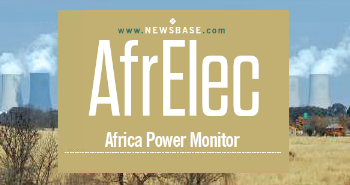World Bank consents to legal separation of South Africa power utility Eskom’s transmission division
South Africa’s state-owned power utility Eskom has announced that the World Bank, a key strategic creditor of the utility, has granted its consent to the proposed legal separation of the Transmission Division from Eskom Holdings SOC Ltd (Eskom) to the National Transmission Company South Africa (NTCSA).
“The World Bank’s consent marks a significant milestone in advancing our turnaround plan and contributing towards a sustainable resolution of the country’s energy crisis. It is subject to certain conditions, e.g., confirmation that all the necessary suspensive conditions required to operationalise NTCSA have been met,” Eskom said in a statement on November 28.
NTCSA has already obtained licences for the operation of a transmission facility, as well as an electricity trading and an import/export licence from the National Energy Regulator of South Africa (NERSA).
“Obtaining the remaining financial creditor consents is one of the final outstanding conditions to the implementation of the legal separation of Transmission. We are hopeful that the remaining consents will be granted as soon as possible so that we can finalise this process,” said Eskom’s acting group chief executive Calib Cassim.
According to the utility, the legal separation of Transmission is a strategic objective and key aspect of its Turnaround Plan envisaged in the Department of Public Enterprises’ “Roadmap for Eskom in a reformed electricity supply industry.”
The move is seen by Eskom as essential to allow much-needed new grid access, to encourage investment in the generation sector, and through that help the country improve its security of supply.
The World Bank has also recently approved a $1bn Development Policy Loan for South Africa. “This substantial financial support demonstrates the World Bank’s broader commitment to assisting the country and Eskom in promoting long-term energy security,” Eskom said.
According to the World Bank, its Development Policy Loan would contribute to a gradual reduction in water and air pollution by reducing the reliance on coal for power generation in South Africa, Independent Online (IOL) has reported.
“It supports the opening of the power market and aims at improving Eskom’s efficiency by redirecting its resources toward investments in transmission and maintenance of existing power plants,” the World Bank said.
The news follows S&P Global’s recent upgrade of the power utility’s credit ratings and revision of its outlook, writes IOL.
S&P said the upgrade was due to its expectation that the South African government’s ZAR254bn ($13.5bn) financial support package will cover Eskom’s debt servicing and repayment obligations over the period of three years.
In the meantime, Eskom ramped up its rotational power outages, or load shedding, from Stage 4 to Stage 6, for the second time in a space of days, in a bid to replenish emergency reserves, says IOL.


Follow us online